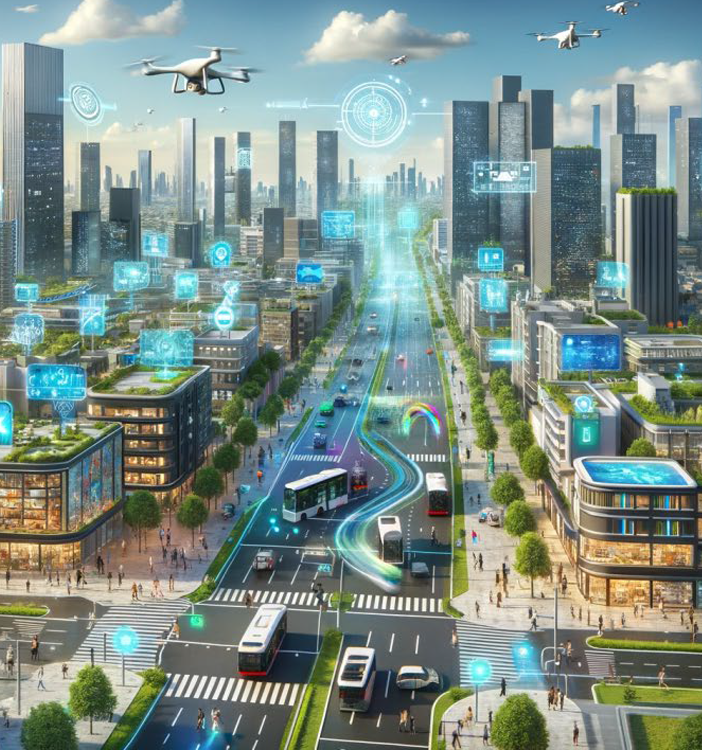As cities around the world continue to expand, the concept of smart cities has emerged as a solution to the challenges brought by rapid urban growth. Smart cities leverage technology and data to enhance the quality of life for their inhabitants, making urban areas more efficient, sustainable, and liveable. This blog explores the global influence of urbanization and the transformative potential of smart cities.
The Drive Towards Urbanization
Rapid Urban Growth
By 2050, it is projected that nearly 70% of the world’s population will live in urban areas, up from 55% in 2018. This unprecedented migration to cities is driven by the search for better job opportunities, improved living standards, and access to education and healthcare.
Challenges of Urbanization
While urbanization brings economic growth and innovation, it also presents significant challenges:
- Infrastructure Strain: Overcrowded cities face pressure on their infrastructure, including transportation, housing, and utilities.
- Environmental Impact: Increased pollution and waste generation, coupled with higher energy consumption, contribute to environmental degradation.
The Rise of Smart Cities

A smart city uses digital technology and data analytics to enhance the efficiency and quality of urban services, reduce resource consumption, and engage citizens more effectively. The core components of a smart city include:
- IoT and Connectivity: Integrating Internet of Things (IoT) devices to gather and analyze data.
- Sustainable Practices: Implementing eco-friendly solutions for energy, transportation, and waste management.
- Citizen Engagement: Using digital platforms to involve citizens in decision-making processes.
Benefits of Smart Cities
Improved Infrastructure:
- Smart Transportation: Intelligent traffic management systems reduce congestion and enhance public transit efficiency.
- Efficient Utilities: Smart grids and water management systems optimize resource distribution and reduce waste.
Enhanced Quality of Life:
- Public Safety: Surveillance systems and predictive analytics improve emergency response times and reduce crime rates.
- Health Services: Telemedicine and smart health monitoring provide better healthcare access and management.
Environmental Sustainability:
- Energy Efficiency: Renewable energy sources and smart buildings reduce carbon footprints.
- Waste Management: Automated waste collection and recycling systems promote a circular economy.
The Future of Urbanization and Smart Cities

Integration of AI and Machine Learning: Future smart cities will increasingly rely on artificial intelligence and machine learning to analyse vast amounts of data, predict trends, and make informed decisions. These technologies will enable more personalized and efficient urban services.
Focus on Sustainability: Sustainability will remain a key focus, with smart cities striving to achieve carbon neutrality through renewable energy sources, green buildings, and sustainable mobility solutions.
Enhanced Citizen Participation: Digital platforms will continue to empower citizens, giving them a voice in urban planning and policy-making. This participatory approach will ensure that smart cities address the real needs and concerns of their inhabitants.
Conclusion
Urbanization and the rise of smart cities are reshaping the global landscape. By leveraging technology and data, smart cities offer innovative solutions to the challenges of urban growth, creating more efficient, sustainable, and liveable environments. As we move forward, the integration of AI, a focus on sustainability, and enhanced citizen participation will drive the evolution of smart cities, making them a cornerstone of future urban development.



